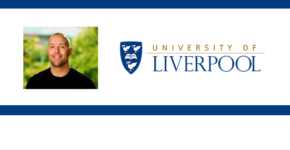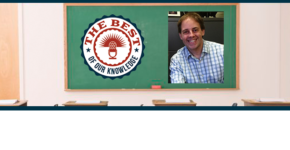Tag: psychology
-

Martin Krieger, University of Southern California – Creativity and Newton
Creativity can come in many forms. Martin Krieger, professor of planning at the University of Southern California, explains the novelty of this path of thought. Martin Krieger’s current work is on defense and military policy, and on uncertainty and ambiguity. He has done social-science informed aural and photographic documentation of Los Angeles, including storefront houses…
-

Shervin Assari, University of Michigan – Resilience Among Different Races
Can members of one race be more resilient than members of another? Shervin Assari, research investigator with the department of Psychiatry and school of Public Health at the University of Michigan, details the reasons this might be. Dr. Assari is a research investigator with the department of Psychiatry and school of Public Health. He is…
-

William Chopik, Michigan State University – Happy Spouses
Does a happy spouse make for a healthier you? William Chopik, assistant professor of psychology at Michigan State University, finds out. I am a social-personality psychologist interested in how relationships—and the people in them—change over time and across situations. My research focuses on how factors both inside (biological, hormonal) and outside (social roles, geography) of…
-

Craig Thorley, University of Liverpool – Group Work Can Harm Memory Recall
We all remember the slacker in our last group project. Craig Thorley, lecturer in psychology at the University of Liverpool, explains that slacking off isn’t the reason groups can fail to remember vital information. Dr. Craig Thorley, PhD, is a Tenure-Track Lecturer in Psychology at University of Liverpool, England. As of January 2017 he will…
-

Abraham Palmer, University of California San Diego – Do These Genes Make Me Lonely?
Loneliness might be passed on from one generation to another. Abraham Palmer, professor of psychiatry at the University of California San Diego, examines if a tendency for loneliness can be found in your genes. My research examines the influence of genes on behavior and reflects my training in behavioral neuroscience, molecular biology, pharmacology and quantitative…
-

Alison Phillips, Iowa State University – Exercise Routines and Intrinsic Rewards
How is your exercise routine? Alison Phillips, assistant professor of psychology at Iowa State University, examines a way to make a new habit stick. Dr. Alison Phillips is an assistant professor in the Department of Psychology at Iowa State University and is director of the Healthy Habits Lab, where she conducts research regarding medication adherence,…
-

Mitch Prinstein featured on The Best of Our Knowledge
As always, host Bob Barrett selects an Academic Minute to air during The Best of Our Knowledge. Each week this program examines some of the issues unique to college campuses, looks at the latest research, and invites commentary from experts and administrators from all levels of education. For this week‘s edition (#1366), Bob has selected…
-

Philip Watkins, Eastern Washington University – Gratitude Exercises
How to be happier? Do some exercises. Philip Watkins, professor in the college of social sciences at Eastern Washington University, explores how gratitude exercises can help strength your sense of well-being. Philip Watkins received his BS in psychology from the University of Oregon and his PhD in clinical psychology from Louisiana State University. He is…
-

Nathan Deichert, Black Hills State University – Impact of Gratitude on Stress
The holidays are a stressful time. Nathan Deichert, assistant professor of psychology at Black Hills State University, determines gratitude can help manage some of that anxiety. Dr. Deichert earned his Ph.D. in Experimental Social-Health Psychologist from Kent State University in 2007 and is currently an Assistant Professor of Psychology at Black Hills State University in…
-

Ed Hirt, Indiana University – Self Sabotage
Are you a morning person or a night person? Ed Hirt, professor in the department of psychological and brain sciences at Indiana University Bloomington, discusses how self-sabotaging behavior might happen when we think we’re at our best. Ed Hirt is a professor in the College of Arts and Sciences’ Department of Psychological and Brain Sciences…
